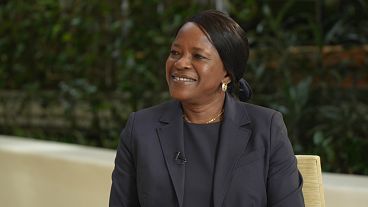Consumers worried during June about the future and their standard of living, with several expecting to be able to save less in the foreseeable future.
French consumers remain wary and pessimistic ahead of the elections, according to the newly published French consumer confidence report for June, published by INSEE. Confidence was at the 89.5 this month, down from 90.1 in May and in line with analyst expectations.
This was well below the long-term average of 100, with consumers especially worried about standard of living prospects, which fell further in June, to -50 from -46 in May. Furthermore, the number of households being willing to make major purchases in June also dropped to -33 from -32 in May.
Inflation expectations also increased to -47 in June (a minus figure indicates a deterioration in confidence, therefore the lower the figure, the worse the confidence), up from -53 in the previous month. Consumers also expect to be able to save less in the foreseeable future, with the indicator for future savings capacity falling to 7 in June, from 11 in the previous month.
However, worries about unemployment decreased to 25 this month from 27 in May, while the outlook for future financial situations was more stable at -13 up from -14 in the previous month.
The forthcoming French elections and the economy
Although France's economy has been doing relatively well over the past few months, as far as inflation and job growth is concerned and compared with other major European economies, French consumers remain pessimistic.
The parliamentary elections are being held in two rounds on 30 June and 7 July.
President Emmanuel Macron's decision to announce a snap election took everyone by surprise, with the uncertainly of what might come causing strong reaction for the French financial markets.
Earlier this month, market analyst Piero Cingari wrote for Euronews Business: "The political crisis in France, sparked by the unexpected results of the European elections, has weighed heavily on European markets and caused a widening of yield spreads between government bonds within the eurozone."
Recent polls indicate Marine Le Pen's National Rally (RN) party is still ahead with voters, while the left-wing coalition of the New Popular Front has strong backing among 18-24 year olds. This scenario suggests a shift towards extreme parties compared to centrist and market-friendly parties, with President Emmanuel Macron's Together coalition in third place.
The right-wing RN party is in favour tighter immigration laws, tax cuts and a renegotiation of its position within the EU and Nato. The New Popular Front alliance, made up of the Greens, Socialists and Communists is looking to fund public spending through tax rises from business. It also wants a cut in the pension age.
Commenting earlier, Goldman Sachs equity analyst Lilia Peytavin said that, if the far-right party's 2022 programme were implemented, market reactions could be severe. However, she also suggested that the measures might be more business-friendly than expected, as the far-right would be aiming to secure the 2027 presidential election. If that were the case, markets might be positively surprised.
Following the results after the European elections held in early June, banking group Intesa Sanpaolo analysts Pasquale Lodato and Luca Cigognini commented: "At the EU level, despite the outgoing majority maintaining control, the focus of the next legislature will shift from the green and digital transition to more industrial and political themes. We can anticipate a move from a liberal approach to more interventionist public involvement in the economy."















